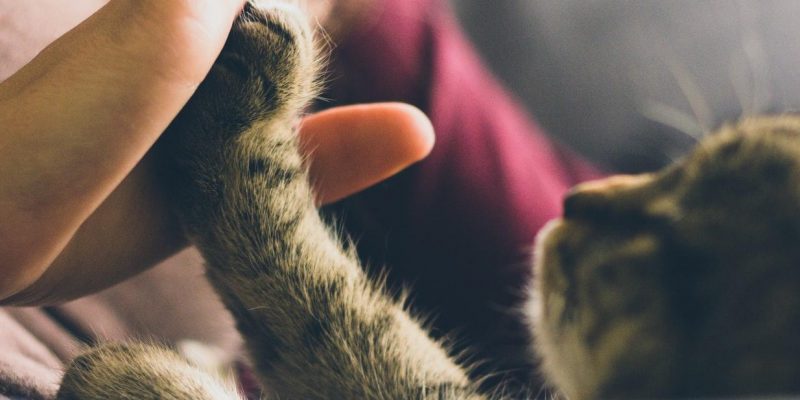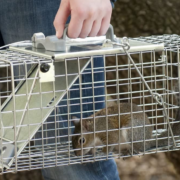Losing a pet can be devastating and heartbreaking. This article will help you cope with this painful situation.
When a favorite person dies, we mourn for days, express sorrow and get love and support from family and friends. Unfortunately, this isn’t always the case when a pet dies. Many people don’t understand how important a pet can be in someone’s life.
Pets are constant companions and often become like family members. So it is not unusual to feel devastated with sorrow and grief when a pet dies.
We are going to help you cope with the demise of your beloved pet.
Coping With Grief
Grief is a personal experience. It may last for days for some people and years for others. In the beginning, you may feel anger toward your veterinarian, family, friends, or anyone who was involved with the situation. You may also feel guilt over what you did or did not do. And eventually, when all these feelings subside, you may feel true grief or sadness.
However, you do not need to face this loss alone. There are many forms of support available to help you cope, such as support hotlines for pet loss, pet bereavement counseling services, local or online pet bereavement groups, videos, books, and magazines. The following suggestions may also be helpful.
1.Express your emotions. It is obvious that the death of your pet will make you upset, and there is no reason to hide it. Instead of trying to be strong, acknowledge your emotions and let them out. Keeping a journal may also help you in this situation.
2.Prepare a memorial or other ceremony for honoring your pet.
3.Connect with your relatives and friends for emotional support. You will feel better by simply having them listen. With a little research online, you will find many support groups and resources that can also help you to deal with the situation.
4.Contact your veterinarian or local shelter and ask them if there is a pet loss support group in your area. There you will meet people who can truly understand your grief.
5.Talk to a therapist. It can greatly help you in this situation, especially if you are depressed. Grief counselors are specially trained to help people work through the major losses of their lives.
Help Children to Cope
For children, it can be even more difficult to cope with the death of a pet. It may be their first experience with death and it is necessary, to be honest with them. Explain to them about the loss of the pet in a way that they will understand. Do not try to protect them by saying that the pet has run away. That can lead them to hope that the pet will return, and they will feel betrayed after learning the truth.
The child may feel guilty and depressed and blame themselves or their parents for the pet’s death and for not saving it. Be gentle with their feelings. Express your own grief and assure them that it is okay to be sad. Allow them to say a few words in the memorial and give them a chance to make a memento of the pet, for example, a special photograph.
Allow the Seniors to Grieve
Losing a pet may be traumatic for seniors, especially those who live alone. They may feel extremely empty and lose their sense of purpose. It may also remind them of previous losses. So it is more necessary for seniors to overcome the loss and regain a sense of purpose. If you are an older adult, take as much time as you need to mourn and do not hesitate to look for additional support if needed.
Maintain Your Other Pets’ Normal Routine
If you have other pets, they may also feel distressed by the loss of their friend. You may notice apathy in their usual activities, reduced appetite, or sluggishness. Even if they were not particularly close, your emotional state and the changing situation are enough to make them upset. It is important to follow their normal schedule and show them extra love in this situation.
Move Forward After the Loss
Once you have gone through the primary grief process, these steps may help you move forward:
1.You may have thousands of photos of your pet on your phone, computer, or on social media. Put all the photos together and make a memory book. This will be helpful to maintain your beautiful memories of your pet. Besides, a tangible photo album or memory book is much more consoling than digitized items.
2.You can buy a custom stuffed animal of your pet to keep its memory alive.
3.Helping other pets can make you feel better. You can volunteer at a local shelter or do some charity in the name of your pet. There are always opportunities to help animal organizations, such as cat cuddling, dog walking, case cleaning, administrative work, and many more.
4.It is necessary to practice self-care methods after the loss of your pet. Take some time every day to do some de-stressing activities, such as reading, meditation, etc. Do not forget to eat healthily and get exercise.
Know When It’s Time to Get Another Pet
After the death of your pet, it can be tempting to get a new pet to alleviate your grief. However, immediately getting a new pet is not a good idea. You may try to replace the deceased one with the new one, but the fact is, all animals have unique personalities and one can not replace another.
So it is wise to bring another pet after you have given yourself, your family, and your other pets enough time to grieve. It can take months or years. Eventually, you will know when you’re ready and when it’s time to adopt your next special friend. You can adopt a puppy, a cat, or an exotic pet. It’s a big decision, so don’t rush into it.
Losing a pet is just as devastating as losing a family member or human friend. With time, the pain will lessen and you can move on with your life.










Comments